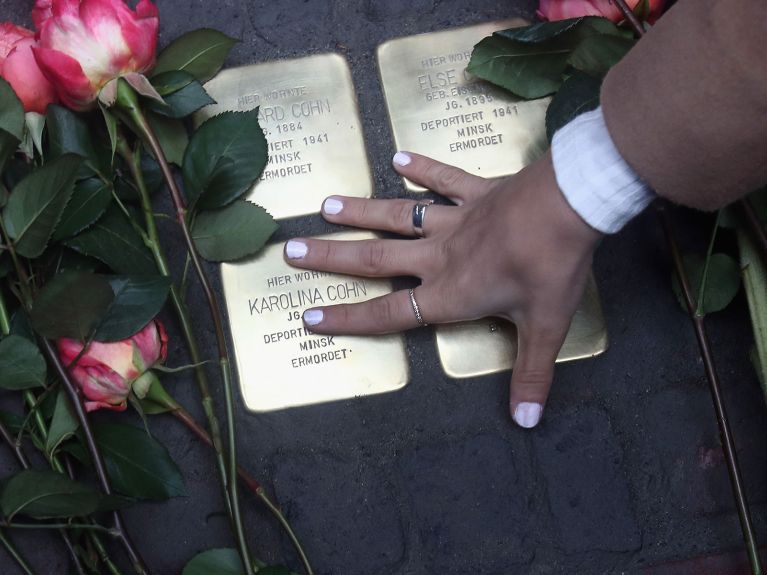Never forget – Germany’s culture of remembrance
Today, there is widespread acceptance among Germans for their historic responsibility for World War II and the Holocaust. That hasn't always been the case.

Germany's approach of coming to terms with its role in World War II and the Holocaust has changed over the years, ranging from an unwillingness to discuss and accept guilt to a very present culture of remembrance that Germans and visitors to the country see today.
In the immediate post-war period, a divided Germany found different ways of shirking responsibility for the not-so-distant past. People in the West generally avoided the topic entirely, while the newly established Communist East gave itself a clean slate, essentially absolving itself of any responsibilities for Nazi crimes.
Slowly however, Germans began to accept their historic responsibility. In 1970, while on a state visit to Poland, West German Chancellor Willy Brandt dropped to his knees at an event to commemorate the Jewish victims of the Warsaw Ghetto. The gesture was unplanned and marked an iconic moment in Germany's remembrance culture.
Dieses YouTube-Video kann in einem neuen Tab abgespielt werden
YouTube öffnenInhalte Dritter
Wir verwenden YouTube, um Inhalte einzubetten, die möglicherweise Daten über deine Aktivitäten erfassen. Bitte überprüfe die Details und akzeptiere den Dienst, um diesen Inhalt anzuzeigen.
Einverständniserklärung öffnenThe broadcasting of the American TV series "Holocaust" with Meryl Streep and James Woods to a large German television audience in 1979 is often cited as another crucial turning point in the process of Germany’s coming to terms with its past. It told the fictional story of a Jewish family in Germany during World War II and was the first mainstream media production to focus on the victims of National Socialism. The series initiated an extended public debate among West Germans about their collective past.
In the late 1980s, a controversy called the "Historikerstreit" or "historians' quarrel", saw intellectuals from both ends of the political spectrum debate over how best to remember Nazi Germany and the Holocaust.
Dieses YouTube-Video kann in einem neuen Tab abgespielt werden
YouTube öffnenInhalte Dritter
Wir verwenden YouTube, um Inhalte einzubetten, die möglicherweise Daten über deine Aktivitäten erfassen. Bitte überprüfe die Details und akzeptiere den Dienst, um diesen Inhalt anzuzeigen.
Einverständniserklärung öffnenToday, the concept of collective responsibility dominates Germany's ongoing discussion of the period. For new generations of Germans, World War II history is almost impossible to avoid. The so-called "culture of remembrance" or "Erinnerungskultur", refers to the policy of confronting Nazi-era crimes through frank discussion and by acknowledging responsibility for the Holocaust. It has left its mark all across Germany, from large-scale government-funded memorials to small grassroots initiatives like the “Stolpersteine” - small engraved brass paving stones commemorating victims in the streets where they used to live.




